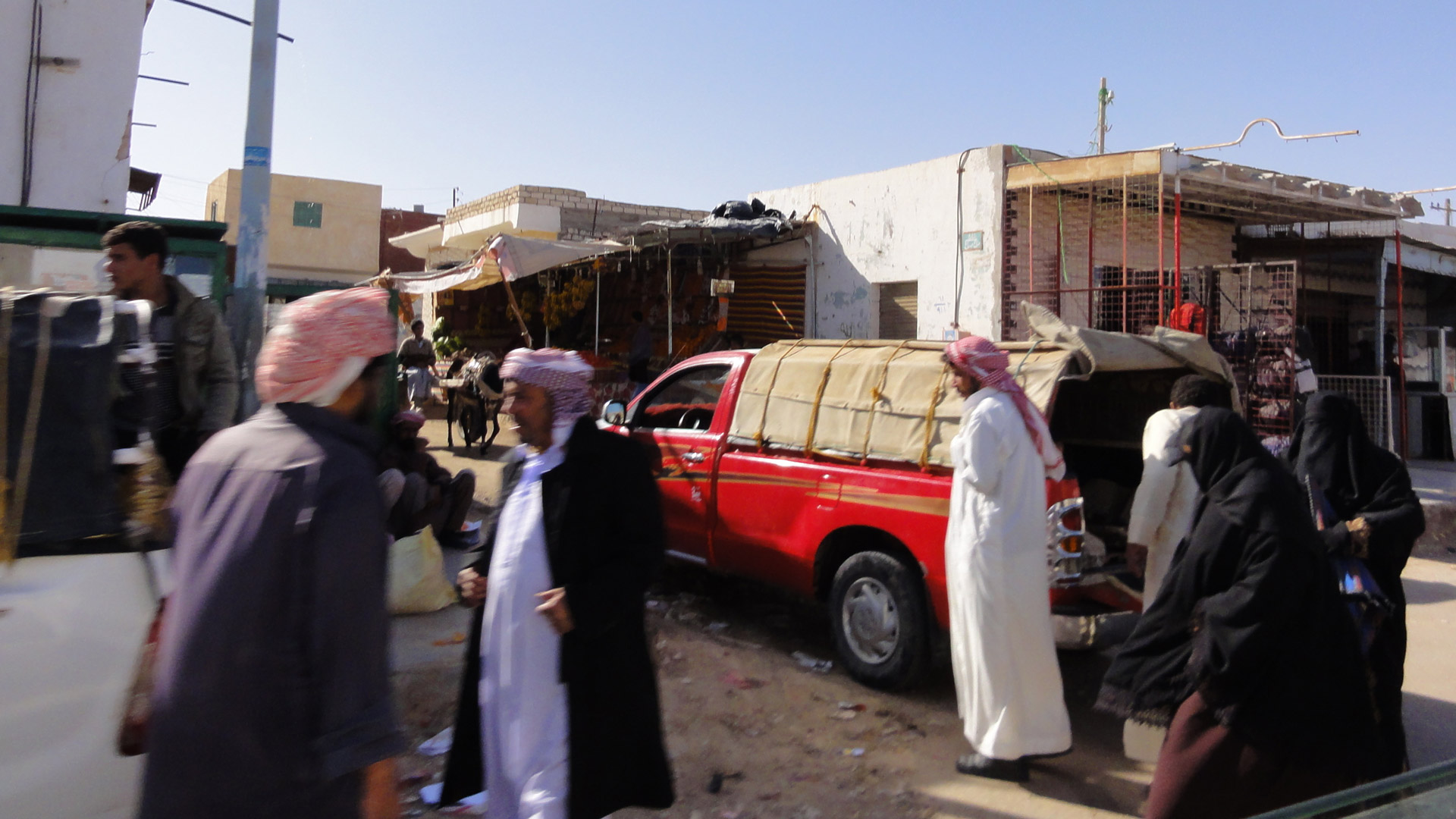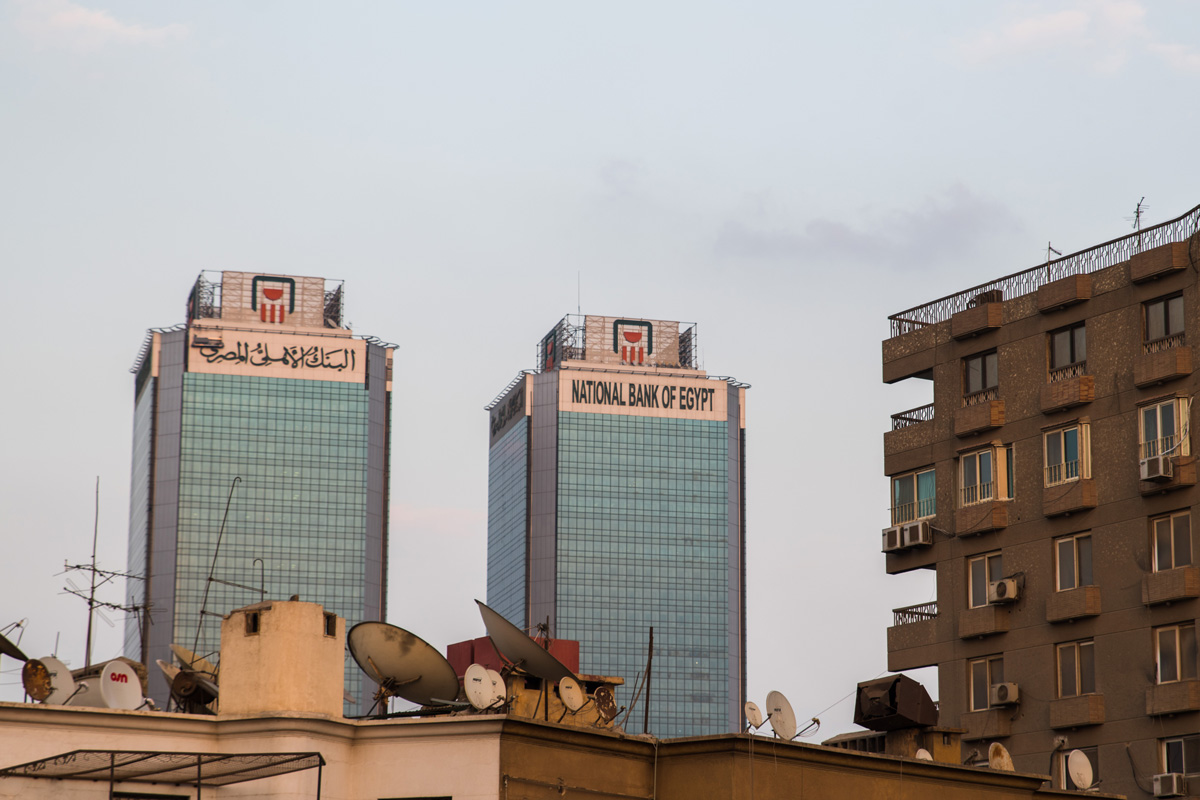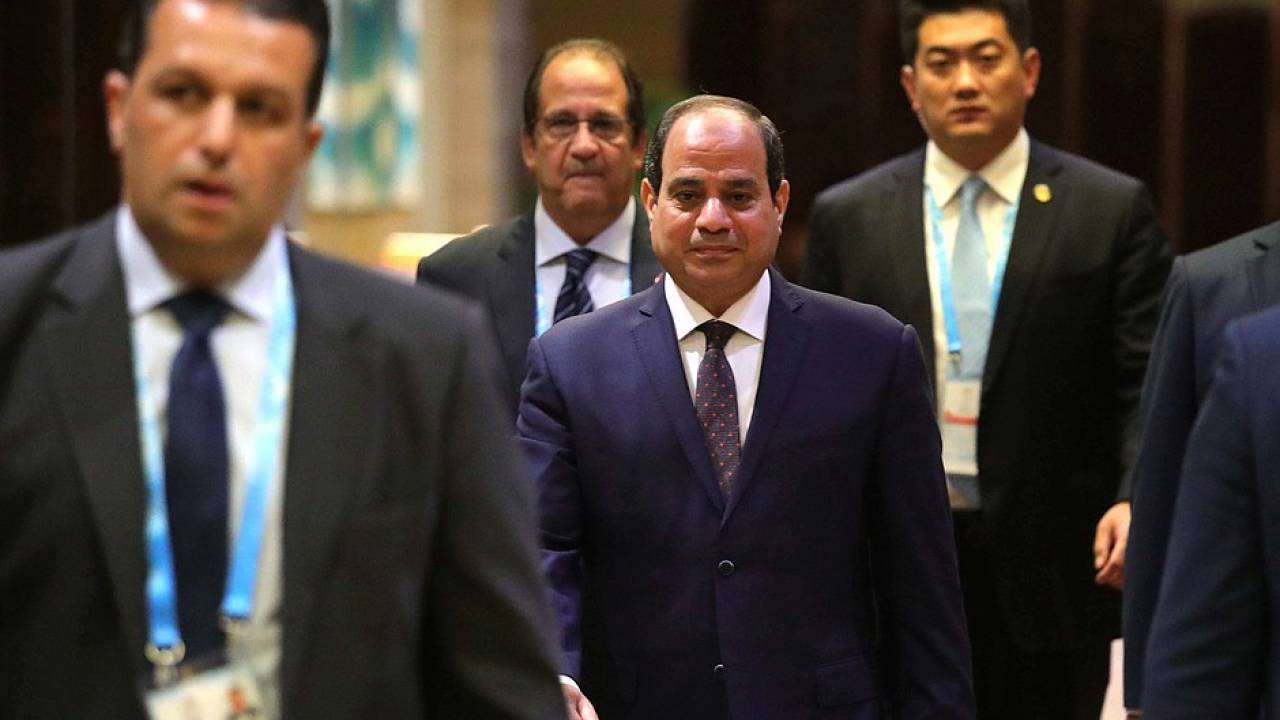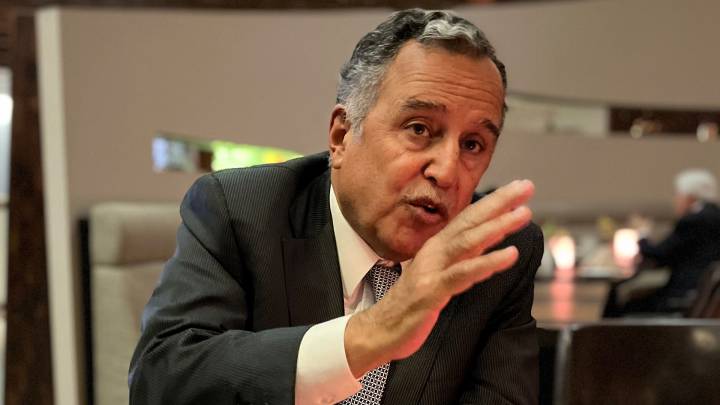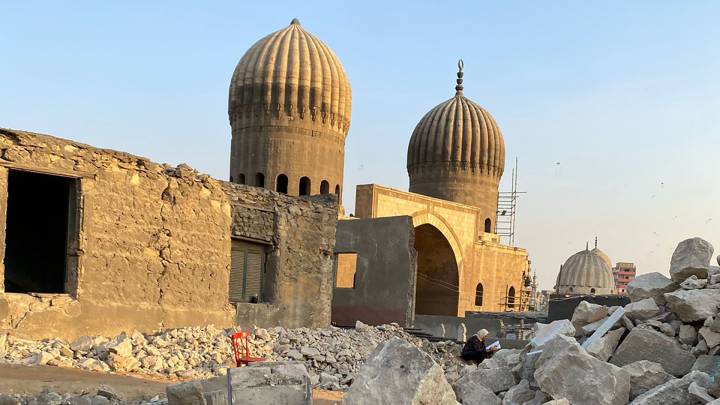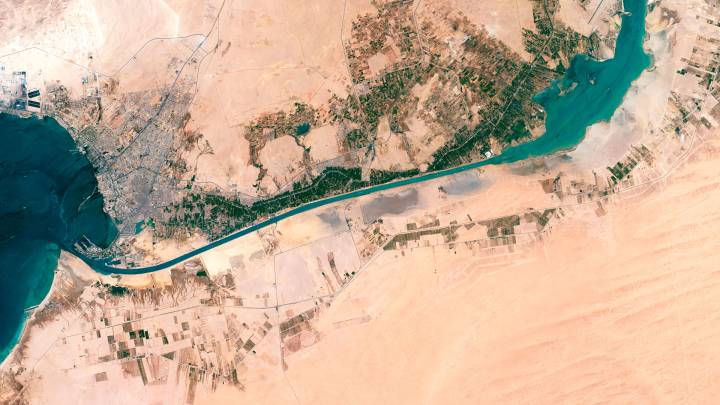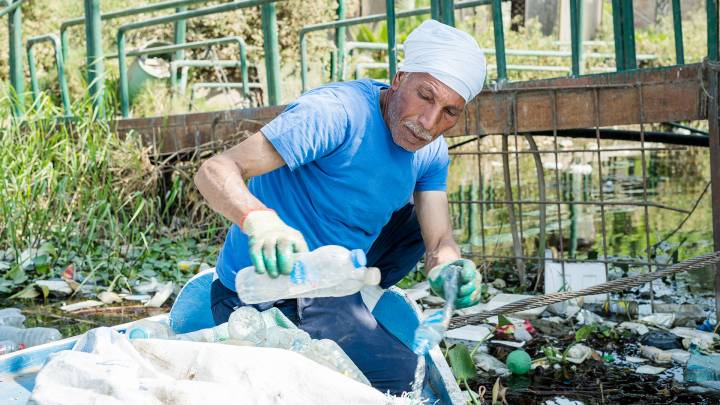Egypt has long thrown its weight behind Khalifa Haftar in Libya, but there are signs that it is opening the door to dialogue with his rivals. Will they listen?
In December 2016, Cairo hosted a summit gathering 120 representatives of Libyan tribes and sects that resulted in the Cairo Declaration. It was one in a round of negotiations initiated by President Abdel Fatah Al Sisi to gather the different Libyan players in the Egyptian capital and discuss the future of Libya. Yet Egypt’s involvement in the North African country appears to be overshadowed by its perceived bias in the Libya crisis.
Sharing all 1,150 kilometres of its western border with Libya, since the 2011 overthrow of Muammar Gaddafi, Egypt’s politicians have feared an overspill of its neighbour’s troubles.
Egypt has been successful at shifting and rebuilding alliances among political, social and tribal forces inside Libya in the past two and a half years.
With this in mind it has moved to exerte strong influence over Libya’s domestic politics, especially following Egypt’s military ouster of Islamist President Mohamed Morsi and amid the steady rise of terrorist activities inside its own borders.
Historic ties between the two nations are deep, according to Mahmoud Al Bousefy, a well-known Libyan columnist, writer and poet, who tells zenith that the “stabilisation of Libya is key to Egypt, and vice versa”.
Egypt’s links to Libya include economic ties. Media reports suggest 1.5 million Egyptians were working in Libya prior to the revolution, mostly in construction, oil and gas. An estimated $254 million in remittances is still sent back to Egypt every year, according to the Egyptian Labour Ministry.
Little hope for a breakthrough
Egypt’s influence has recently been characterised by its strong support for Field Marshall Khalifa Haftar, whose Libyan National Army controls much of eastern and southern Libya and who rejects a UN-backed government in Tripoli that is struggling as armed factions vie for power.
From an ideological stance, as a staunch anti-Islamist, Egyptian President Abdel Fattah Al Sisi has an interest in supporting Haftar, who has vowed to rid the country of Islamist factions. From Egypt’s perspective, a vacuum in the east could pave the way for terrorist groups to infiltrate Libya.
By backing the controversial strongman financially, diplomatically and militarily, Egypt “has effectively built Haftar’s strength” and has therefore played an essential role in shaping the Libya crisis, according to Riccardo Fabiani, senior analyst for the MENA region at Eurasia Group. But it has come at a cost: Egypt’s heavy support for the field marshall has been seen as interference and has largely been met with hostility in the country’s west. However, this perception has changed over time, with Cairo increasingly reaching out to western Libyan actors, reflecting a gradually morphing geo-political strategy.
“Factions in the west have showed willingness to engage with Egypt to get some kind of deal that is acceptable for them,” the analyst observes. He believes Qatar’s decision to halt military aid to western militias, and the loss in support from Turkey, have led these militias to show more flexibility towards Cairo’s new policy in Libya. Libya’s western camp is mainly divided between hardline segments who reject Egyptian mediation or any compromise with Haftar, and moderate elements now more open to talking to the east.
On the other hand, Fabiani notes that Egypt still seeks to broker a peace settlement on its terms, meaning Haftar running in the next elections and eventually ruling Libya. From his perspective, Cairo is putting its money on Haftar and striving to get him accepted in western Libya.
Egypt’s continued support for Tobruk’s strongman has caused protraction of the conflict, hindering prospects for a settlement between the Libyan parties.
Egypt’s hand in its neighbour’s affairs will likely be strengthened by its track record of working with a range of political players in a country of deep divisions. “Egypt has been successful at shifting and rebuilding alliances among political, social and tribal forces inside Libya in the past two and a half years,” notes Ziad Akl, a researcher in Libyan affairs at the Cairo-based Al-Ahram Centre for Political and Strategic Studies. Still, from the Libyan perspective, Egypt is largely seen as being too closely linked to Khalifa Haftar, impeding any efforts towards neutrality.
“Cairo’s biased stance in Libya has brought about further divisions inside the country. Its continued support for Tobruk’s strongman has caused protraction of the conflict, hindering prospects for a settlement between the Libyan parties,” argues Kamel Abdullah, a researcher specialising in Libyan issues.
Indeed, there are serious doubts that Egypt can act as a facilitator for a compromise in Libya. Although it nominally recognises the Presidential Council and the government of Libyan Prime Minister Fayez al-Sarraj, Egypt has been actively backing Haftar all the way, making itself a ‘’non-neutral’’ party in the Libyan conflict, says Claudia Gazzini, a senior analyst on Libya at the International Crisis Group (ICG).
She highlights the intractable problems of Misrata, the wealthy port city home to Libya’s largest and most powerful militias and the main military force in western Libya. Originally playing an important role in backing Sarraj and fighting ISIS, armed groups in Misrata are today divided in terms of allegiance between the GNA and the rival National Salvation Government in Tripoli, a coalition of radicals, and on whether to accept Haftar in Libya’s political reality or not.
“It is important that Misrata’s political and armed factions come on board,” says Gazzini, who has little hope for a breakthrough any time soon.
Fragmentation in the west
One concern in Misrata is that Cairo will lend Haftar its political and military clout without ensuring a “fair balance” of power, given the fragmentation of powers on the ground. Sarraj was empowered to lead a two-year peaceful transitional period ending this December, but in reality his influence is sorely limited.
“The internationally recognised government is still competing for authority, the rival government in the east continues to exist, the country remains divided, the institutions are dysfunctional,” says Gazzini.
The Tripoli-based Government of National Accord (GNA) has so far proven ineffective, largely failing to address everyday problems such as power cuts, water shortages and the currency crisis. With little authority and only partial support from political and armed factions, the interim government has been rejected by eastern factions aligned with General Haftar, widening divisions within the country. Making the situation around Misrata ever more problematic, the flow of illicit weapons has increased since the 2011 revolution.
According to Ziad Akl, while Sarraj symbolises the anti-Haftar camp which Misrata initially sided with, he has been incapable of delivering any significant gains to the military elite in Misrata, and Haftar is trying to break into this space and extend his control into the west.
The Libya expert hints at deep fragmentation in the country’s west – unlike the east, where Haftar has united tribes and clans, limited the flow of illegal migration, and eradicated ISIS and other jihadist groups – but a stabilisation plan would need to involve both Misrata and Tripoli, as well as the Tobruk parliament. Egyptian mediation will only work if Cairo and close ally Haftar throw their combined weight behind a solid agreement including all actors in the political framework and civilian oversight of the military.
That ushers in another divisive topic. Who would control a unified Libyan army? All parties accept that the military should be put under civilian oversight, Fabiani clarifies, but they disagree on which civilian authority should be in charge. General Haftar believes he should head the army, and Egypt agrees. This remains a remote vision, however, as there is currently no real army in Libya, just a range of armed groups.
In September this year Cairo formed a committee which is set to discuss further steps related to the formation of a unified Libyan army. In a special UNSC meeting on the Libyan crisis, on 20 September, Sisi said that Egypt will be among the top countries supporting efforts at the UN to reach a comprehensive settlement in Libya.
But as uncertainty and infighting continues in Libya, Egypt will clearly remain involved in Libyan affairs. The country has repeatedly worked to bring opposing sides together. It has also continued to pressurise Haftar to meet Sarraj and agree on a compromise that would pave the way for a settlement in Libya.
A number of commentators and researchers welcome Egypt’s success in bringing the relevant actors to the table, from army figures to politicians to tribal elders.
“For the first time ever since the collapse of the Ghaddafi regime, Libya is experiencing some high-level coordination between political authorities and military powers, and a reshuffle of their alliances,” says Ziad Akl.
Fabiani agrees that it is useful that Egypt interacts with all sides, but does not think the country, with its deep vested interests, is the key to unlocking the intractable Libyan conflict.
“Cairo is trying to achieve a deal that reinforces Haftar’s and Egypt’s influence within Libya by convincing the various parties that there is no other solution than a compromise that is on Haftar’s side,” he says.

